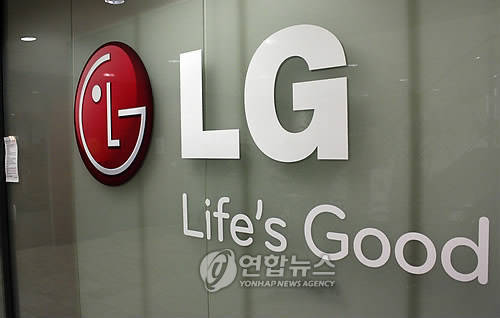Consider a hypothetical situation for LG Electronics Co. in which the South Korean tech company's bold move to embrace English as an in-house language were successful about a decade ago.
Armed with its employees' global mindset and fresh corporate culture, LG overpowers Samsung Electronics Co. both at home and abroad and becomes a formidable archrival of Apple Inc. in the smartphone world.
In reality, however, the "Global LG" dream evaporated in 2010 with the disgraceful resignation of then-Vice Chairman and CEO Nam Yong and a number of foreign executives.
They took responsibility for a slump in LG's smartphone business amid criticism that the in-house English campaign undermined internal communication, morale and productivity.
Pundits raise the question of what would have happened if LG were more patient.
"If LG had succeeded in its English campaign at that time, it wouldn't have been in a difficult situation like now. It was not desperate," Mo Jong-ryn, a professor at Yonsei University's Graduate School of International Studies, argued in a phone interview.
He has advocated the adoption of English as an official corporate language, as local firms bear the brunt of low birth rates, an aging population, and fears of a drawn-out recession.
It's one of the most effective and powerful ways to globally compete, he says, especially in the case of companies with operations abroad or seeking to go global.
"Under the current business circumstances, more and more becoming globalized, there is no option other than using English as another official language," he said. "It's time to consider at least an English-also policy, if not English-only."
Many expect English to remain the top global business language. More foreigners will learn and speak Chinese, but one drawback is that it's very difficult to master. Conversely, Chinese businesspeople speak English relatively well.
South Korea is well-known for English education. Students spend day and night learning English, a key requirement for entering colleges and landing jobs, at schools and in after-class private lessons. The market size of private English education is estimated to reach 15 trillion won (US$12.8 billion).
Nonetheless, South Korea ranks 27th among 70 nations in the EF English Proficiency Index for Schools, which measures the average level of English skills among adults.
Many workers stop using English as soon as they get a job.
"It's important to create conditions for them to speak and write in English consistently," Mo stressed.
He said the so-far-so-good campaign by Rakuten Inc., a Japanese online retail giant, is a good case study.
Rakuten chose English as its working language in 2010. Its CEO Hiroshi Mikitani believes that quickly and efficiently responding in English by phone and email and also using it in presentations and meetings is a precondition for enhancing international competitiveness. He coined the word "Englishization."
As a result, the average TOEIC score of his more than 12,000 employees has surpassed 800 out of a possible 990 points, up from 526 in 2010.
The company's revenue has since continued to grow via aggressive M&As abroad.
Several other Japanese firms such as Fast Retailing, which operates the Uniqlo fashion chain, Bridgestone and Honda have sought similar strategies, according to media reports.
"Currently, Englishization 2.0 is underway and is supposed to be completed by July this year," Shim Jae-min, a South Korean software architect working at Rakuten in Tokyo, said in an email interview. "All official meetings at our company are held in English and official mails and documents are written in English as well."
He does not need to use Japanese at work. He admitted that it's stressful to use English only.
"I think, however, many colleagues regard it as an opportunity for development," he said. "It offers more chances to work together with engineers across the world. That's possible thanks to English, which is a means of common communication."
Although it's debatable how much Rakuten's English drive has contributed to its accomplishments, what seems to be clear is that it has done much to transform the corporate culture.
Kakao Corp., which operates South Korea's top mobile messenger KakaoTalk, has a far smaller but meaningful policy.
All of its employees call their colleagues by English names, skipping job titles, in an effort to make the company's communication system "flat" and encourage "egalitarian" debates of new ideas.
For LG officials, their language experiment is forgotten history.
"Frankly, we don't talk about it these days," Song Geun-young, an LG spokesman, said cautiously. "I think it's hard to say whether it was a success or a failure."
It may be fair to say that the negative part of the policy has "perished in a natural manner," while the positive side is still in place, he added.
Another LG official, speaking on the condition of anonymity, was vocal.
"It's my view that Vice Chairman Nam Yong's English drive was radical and unrealistic," he said. "LG Electronics, a manufacturer, is a different case from the service industry firm Rakuten that seeks to grow through M&As. For a company like LG, advanced technology and marketing strategy matters more."
He said expanding English usage at work in a gradual way may be required.
"Working at an overseas office (several years ago), I wasted lots of time and energy translating emails from Seoul," he said.
An official at Samsung Electronics, who also asked not to be named, said, "We don't have a mandatory company-wide policy on English use. We don't feel the need for it. Of course, teams with foreign leaders naturally use English more often."
It would be difficult to gauge the impact of English on the future of LG, Samsung, Rakuten, Kakao and other firms in fierce global competition.
"One certain thing is that in business, using a language is not just a functional matter but linked to ways of thinking," professor Mo emphasized. (Yonhap)






![[KH Explains] No more 'Michael' at Kakao Games](http://res.heraldm.com/phpwas/restmb_idxmake.php?idx=645&simg=/content/image/2024/04/28/20240428050183_0.jpg&u=20240428180321)